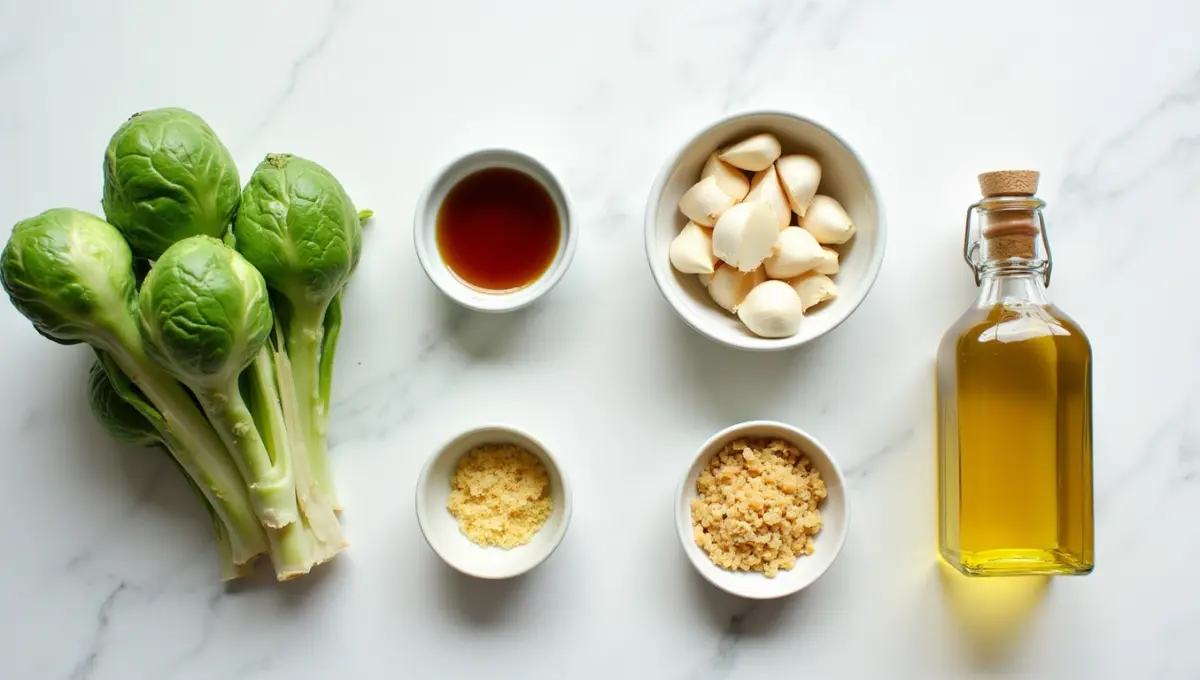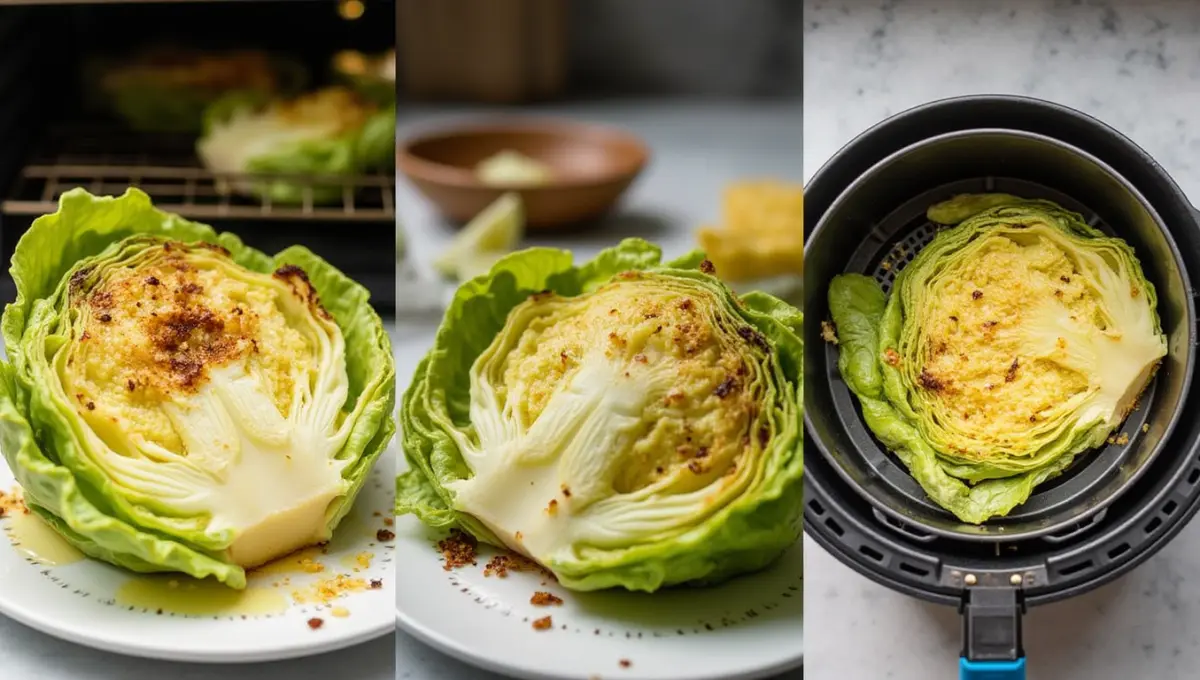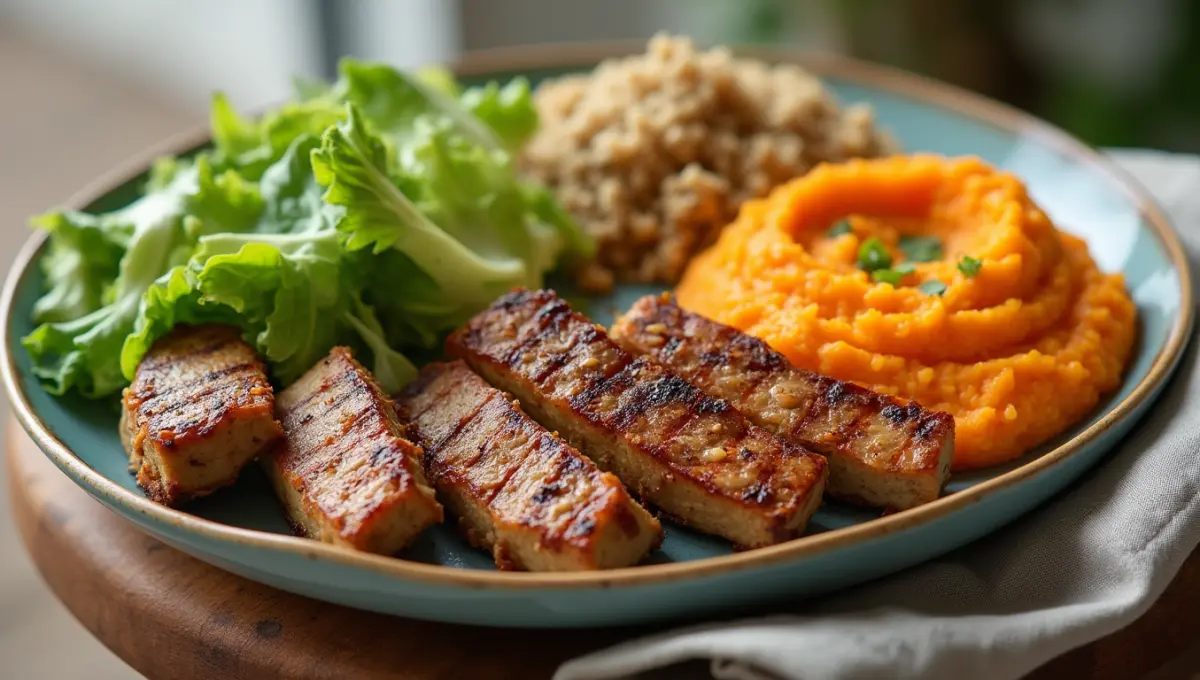If you’re craving a quick, easy, and healthy addition to your weekly menu, this Brussels Cabbage recipe is about to become your new go-to. Whether you’re planning a wholesome vegan side dish for dinner or need a flavorful option for your plant-based meal prep, this recipe checks all the boxes—simple ingredients, fast prep time, and big flavor.
Packed with fiber, essential nutrients, and satisfying crunch, these vegan Brussels sprouts are a hit with the whole family. Even better? This post is friendly, informative, and crafted to support a wholesome, plant-forward lifestyle. For more easy plant-based meals, explore our vegan recipe collection. Let’s dive into three vegan cooking tips that will make your Brussels cabbage shine.
What Is Brussels Cabbage?
Brussels cabbage, more commonly known as Brussels sprouts, is a type of cruciferous vegetable that resembles a miniature version of regular cabbage. These small, leafy green buds grow on tall stalks and belong to the same family as broccoli, kale, and cauliflower. Despite their size, Brussels cabbage packs a powerful punch when it comes to both flavor and nutrition.
As a member of the green leafy vegetables group, Brussels cabbage is considered one of the most nutrient-rich plant foods you can add to your diet. It’s especially high in dietary fiber, which supports healthy digestion and helps keep you feeling full longer. Just one serving offers a generous amount of vitamin K (important for bone health and blood clotting) and vitamin C (an antioxidant that supports immune function and skin health).
In plant-based cooking, Brussels cabbage is a versatile ingredient that works well in roasting, sautéing, and air frying. Its slightly nutty, earthy flavor pairs perfectly with other whole food ingredients, making it an excellent choice for those looking to incorporate more nutrient-rich plant foods into their meals. Whether you’re aiming to boost your intake of green leafy vegetables or simply trying to find easy plant-based meals, Brussels cabbage is a wholesome option worth keeping in your kitchen rotation.
Ingredients You’ll Need

To make this Brussels Cabbage recipe, you’ll need just a handful of simple, affordable ingredients that are easily available at most grocery stores. These ingredients combine to create a flavorful and nutritious dish that’s perfect for any plant-based meal.
Here’s what you’ll need:
- Brussels sprouts – The star of the recipe, these little cabbage-like veggies are high in fiber and packed with vitamins. They form the base of this dish, providing a delicious, slightly nutty flavor when roasted or sautéed.
- Olive oil – A heart-healthy oil that’s perfect for roasting Brussels cabbage. It helps create that crispy texture while also adding a rich, smooth flavor to the dish.
- Garlic – Fresh garlic brings a savory depth of flavor to the Brussels cabbage. It’s a must-have ingredient in plant-based cooking, offering both taste and health benefits.
- Maple syrup – A touch of sweetness to balance out the earthy flavor of the Brussels cabbage. It also caramelizes when roasted, giving the dish a beautiful golden color.
- Nutritional yeast – This is a game-changer in plant-based cooking, offering a cheesy flavor without dairy. It’s packed with B-vitamins, adding both flavor and nutritional value to your dish.
- Balsamic vinegar – Adds a tangy depth and complexity that complements the sweetness of the maple syrup. It also helps to enhance the natural flavors of the Brussels sprouts.
- Vegan parmesan – For a cheesy, umami kick, this dairy-free alternative is perfect for sprinkling on top of the roasted Brussels cabbage. It’s the finishing touch that brings everything together.
- Tahini (optional dressing idea) – If you’d like to add a creamy element to the dish, tahini works wonderfully. It’s a sesame-based paste that adds richness and a nutty flavor, making it a great choice for drizzling over the Brussels cabbage for extra flavor and creaminess.
These ingredients are not only affordable but also packed with nutrients, making them a great choice for anyone looking to enjoy a plant-based meal that’s both delicious and nourishing.
How to Cook Brussels Cabbage: 3 Easy Vegan Tips

Cooking Brussels Cabbage doesn’t have to be complicated. With these three simple vegan tips, you can elevate your Brussels sprouts to crispy, flavorful perfection. Whether you’re roasting, seasoning, or prepping ahead for the week, these techniques will ensure a delicious outcome every time.
Tip 01: Roast for Crispy Perfection
The best way to cook Brussels Cabbage is to roast it to achieve that perfect crispy texture, especially using an appliance like the Ninja Air Fryer. Here’s how you can do it:
- Temperature and Time: Preheat your oven to 400°F (200°C). This high temperature allows the Brussels cabbage to crisp up on the outside while keeping it tender on the inside. Roast for about 20-25 minutes, tossing halfway through to ensure even cooking.
- Pan Style: Use a baking sheet lined with parchment paper or a roasting pan to help with even heat distribution. Spread the Brussels cabbage out in a single layer to allow the heat to circulate and create a crisp texture on all sides.
For an even crispier result, consider using an air fryer. Simply preheat the air fryer to 375°F and cook for about 12-15 minutes, shaking halfway through. This method delivers extra crunch and tenderness without the need for much oil, making it an excellent option for air fryer Brussels sprouts.
Tip 02: Add Flavor with Vegan-Friendly Ingredients
One of the easiest ways to elevate the flavor of your Brussels Cabbage is by using vegan-friendly ingredients that bring out the best in the dish. For another recipe using nutritional yeast, try our vegan baked mac and cheese.
- Garlic: Fresh garlic adds a savory depth that complements the natural flavor of the Brussels sprouts. Whether you roast the garlic with the Brussels cabbage or sauté it in olive oil first, it brings a rich aroma to the dish.
- Balsamic Vinegar: A splash of balsamic vinegar adds a tangy sweetness to balance the earthy flavors of the Brussels cabbage. It caramelizes during roasting, giving the dish a beautiful golden finish.
- Nutritional Yeast: This pantry staple is a must for plant-based cooking. It gives the Brussels cabbage a cheesy, umami flavor without any dairy, making it the perfect topping after roasting.
- Tahini: For an optional creamy dressing, drizzle some tahini on top of the roasted Brussels cabbage. It adds richness and a nutty flavor that perfectly complements the crispiness.
To keep things interesting, you can experiment with other seasonings, such as smoked paprika, chili flakes, or lemon zest. Simple vegan cabbage ideas like these will ensure that you never get bored of your Brussels sprouts.
Tip 03: Make It Meal-Prep Friendly
One of the best features of this Brussels Cabbage recipe is that it’s perfect for meal prep. Store it in airtight glass containers to keep it fresh. For more meal-prep inspiration, check out our high-protein vegan crock pot recipes.
- Storage Tips: After cooking, let your Brussels cabbage cool completely, then store it in an airtight container in the fridge for up to 4 days. It reheats well in the oven or air fryer to maintain its crispy texture.
- Pair with Grains or Legumes: To turn your roasted Brussels cabbage into a complete meal, pair it with cooked grains like quinoa, farro, or brown rice. You can also add legumes like chickpeas or lentils for extra protein, making it a hearty and balanced option for lunch or dinner. This makes it a great choice for a vegan weeknight dinner or a plant-based cabbage meal that’s both filling and nutritious.
Meal-prepping with Brussels Cabbage is an excellent way to stay on track with your plant-based goals while saving time during the week. The versatility of this dish means you can mix and match with other vegetables or sauces, keeping your meals exciting and satisfying.
Serving Suggestions

Now that you’ve perfected your Brussels Cabbage, it’s time to think about how to serve it! This versatile vegetable pairs beautifully with a variety of plant-based dishes, making it a great addition to any meal. Serve it with our vegan ranch dip for a creamy dipping option, or pair it with our vegan sweet potato cornbread to complement the mashed sweet potatoes suggestion. Here are some delicious pairing suggestions to help you create a well-rounded and satisfying plate:
1. Quinoa
This nutrient-packed whole grain is the perfect base for your roasted Brussels Cabbage. Quinoa is a complete protein, meaning it contains all nine essential amino acids, making it a great choice for a plant-based meal. Its light, fluffy texture complements the crispy Brussels cabbage, creating a balanced and satisfying dish. Plus, quinoa is naturally gluten-free and dairy-free, making it suitable for a wide range of dietary needs.
2. Mashed Sweet Potatoes
The natural sweetness of mashed sweet potatoes pairs perfectly with the savory, roasted flavor of Brussels cabbage. This combination is both comforting and nutritious, as sweet potatoes are high in vitamins A and C, while Brussels cabbage provides fiber and antioxidants. This pairing is ideal for those looking for a gluten-free, dairy-free side dish that feels hearty and indulgent without compromising on health benefits.
3. Tofu Steak
For a protein-packed, satisfying meal, serve your roasted Brussels Cabbage alongside a crispy, grilled tofu steak. Tofu takes on the flavor of whatever it’s cooked with, and when marinated and grilled, it has a delicious texture that complements the Brussels cabbage. It’s a great way to add plant-based protein to your meal while keeping everything dairy-free and gluten-free.
By pairing your Brussels Cabbage with these nutritious and flavorful sides, you create a balanced, satisfying meal that’s not only delicious but also aligned with a plant-based lifestyle.
If you’re looking for more creative ways to incorporate Brussels sprouts into your meals, or if you’re simply interested in exploring other plant-based recipes, be sure to check out our other posts for even more meal ideas and inspiration. Whether you’re new to vegan cooking or a seasoned pro, there’s always something new to try in the world of plant-based dishes.
FAQs
1. Can I Use Frozen Brussels Sprouts?
Yes, you can use frozen Brussels sprouts in this recipe. However, there are a few things to keep in mind. Frozen Brussels sprouts tend to release more moisture during cooking, which can affect their crispiness. To get the best results, it’s a good idea to thaw and pat them dry before roasting or sautéing. While fresh Brussels cabbage will yield the crispiest texture, using frozen sprouts is a great time-saving option, especially when fresh ones aren’t available.
2. Is This Recipe Gluten-Free?
Yes, this Brussels Cabbage recipe is naturally gluten-free! The ingredients, including Brussels sprouts, olive oil, garlic, maple syrup, balsamic vinegar, nutritional yeast, and tahini, do not contain any gluten. It’s a perfect choice for anyone following a gluten-free diet. Additionally, pairing the Brussels cabbage with grains like quinoa or rice can provide a complete gluten-free meal.
3. What’s the Best Oil for Roasting Brussels Sprouts?
The best oil for roasting Brussels Cabbage is one that can withstand high heat while enhancing the flavor of the Brussels sprouts. Olive oil is an excellent choice because it adds a mild, fruity taste and has a high smoke point, making it perfect for roasting. Other oils, like avocado oil or coconut oil, can also be used, but olive oil is the most commonly used and readily available in most kitchens. It’s a healthy option rich in heart-healthy fats.
4. How Long Does It Last in the Fridge?
After cooking, your Brussels Cabbage can last in the fridge for up to 4 days when stored in an airtight container. Be sure to let the Brussels sprouts cool completely before storing them. To reheat, simply place them back in the oven or air fryer for a few minutes to regain their crispy texture. If you want to keep your meal prep fresh for a longer period, consider freezing the Brussels cabbage (though this may slightly affect its texture).
Conclusion
This simple Brussels Cabbage recipe proves that cooking healthy, vegan food doesn’t have to be complicated. With just a few wholesome ingredients and easy techniques like roasting, flavoring with plant-based staples, and prepping ahead, you can create a delicious dish that fits perfectly into your plant-based lifestyle.
Whether you’re serving it as a side with quinoa or sweet potatoes, or building a satisfying main with tofu or legumes, Brussels Cabbage is as versatile as it is nutritious. It’s a naturally gluten-free, dairy-free option that works for weeknight dinners, meal prep, or even special occasions. For more plant-based inspiration, check out our vegan cottage cheese recipes.
Now we’d love to hear from you—what’s your favorite way to cook Brussels cabbage? Share your tips, tweaks, or go-to flavor combos in the comments. Your ideas might inspire the next plant-based favorite for someone else!


2 thoughts on “Brussels Cabbage Recipe: 3 Easy Vegan Cooking Tips”